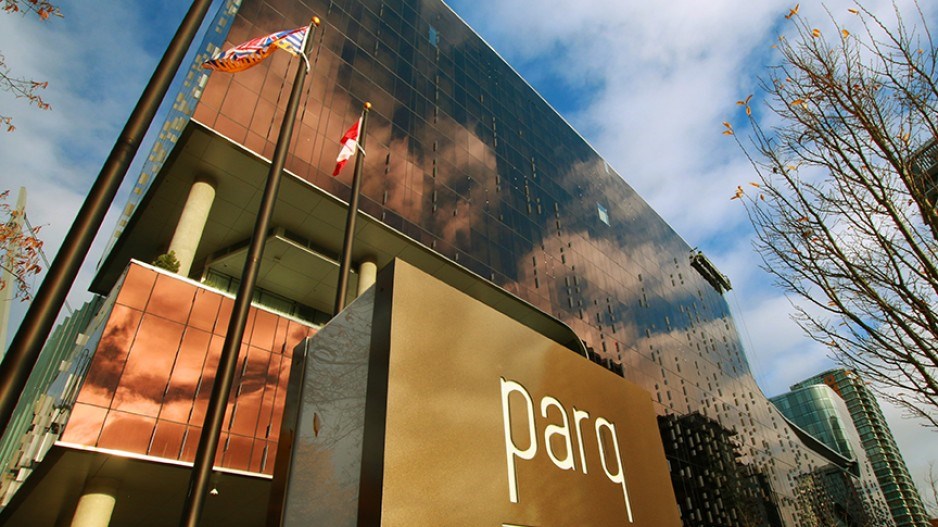Cannabis is not the only thing Canadians were looking to legalize in the last parliamentary session.
It’s illegal to bet on the outcome of a single sporting event in Canada. If you want to legally wager on sports north of the 49th parallel, it has to be in the form of a parlay bet, where you predict the outcome of at least two games correctly in order to win.
When the law was debated and drafted in the ’60s, the objective of making single-game betting illegal was to curb match fixing – the idea being that it is harder to fix multiple games than it would be to fix a single game. However, as with the use of cannabis, making something illegal – particularly if it is a generally socially acceptable activity – doesn’t necessarily stop Canadians from doing it.
Today, the general consensus in the industry and government is that the single-event gambling rule is outdated.
Canadians wager $14 billion illegally on single sporting events each year, according to the Canadian Gaming Association. Most of those bets are made with illegal bookies in Canada, and $4 billion is wagered on offshore online sports betting sites. That is 28 times the $500 million that is bet through legal channels in Canada such as the British Columbia Lottery Corp.’s (BCLC) Sports Action.
So why isn’t Canada taking advantage of this business? Previous efforts to legalize single-game bets have been quashed by the major leagues including the National Hockey League (NHL) and Major League Baseball, which voiced their concern that single-event sports betting could harm the integrity of their games.
Paul Burns, Canadian Gaming Association CEO, said leagues also had concerns over product control and compensation.
However, times have changed, according to Cameron Adams, interim vice-president of digital and enterprise services at the BCLC.
“All the leagues have come out in full support of sports betting based on the changes in the United States,” where major sports organizations now partner with gambling companies, said Adams. “That alone helps to cement its potential future in Canada.”
In 2012 a federal NDP backbencher sponsored a private member’s bill to legalize single-event sports betting. The BCLC wrote to the government in support of the bill. The bill eventually passed the house with cross-partisan support but was held up in the Senate during a politically tumultuous time headlined by Mike Duffy and Pamela Wallin.
The bill failed to pass in the Senate and faded from sight when Parliament was dissolved before the 2015 election.
The bill was raised again in 2016, but after being shut out of government for more than a decade, the new Liberal government had other priorities such as cannabis, according to Burns. Single-event sports betting was put on the back burner.
But last year new life was breathed into single-game betting. The U.S. Supreme Court ruled that it was up to each state to determine the legality of sports betting. That opened the door for legalization across the U.S.
Adams said the ruling in essence legalized sports betting in the view of North America’s major professional sports leagues, persuading them to support the gambling industry.
Without major opposition from major leagues like the NHL, the legalization of single-event sports betting seemed inevitable. In April, TheScore news website enlisted a lobbying firm to press the issue with the federal government. In the same month, the Ontario government included notes in its budget indicating that it wanted to meet with the federal government in the hopes of legalizing single-event sports betting. In 2015, NDP MPs from Windsor, Ontario, home of Caesars Windsor Hotel & Casino, hoped to raise the issue during the last parliamentary session. With multi-party support, legalization of single-event sports betting could become an olive branch from the Trudeau Liberals to both their likely minority partner the NDP and antagonist Conservative provincial governments.
If legalized federally, single-event betting will likely become available in B.C. without much delay.
The BCLC would be able to have its online offering available in a matter of days, Adams said, because the infrastructure already exists through playnow.com, the BCLC’s current online sports betting service for parlay bets. After that, it is up to the individual casinos to determine if and how they want to create their sports book.
Peter Goudron, executive director of the BC Gaming Industry Association, said B.C. casinos are keenly interested in the sports betting opportunity and that they would likely adopt sports books like those in the U.S.
“This is an additional gaming option that would broaden the appeal of the [casino],” Goudron said.•




